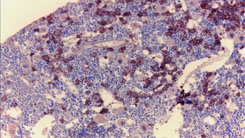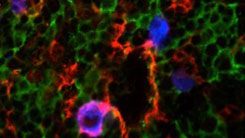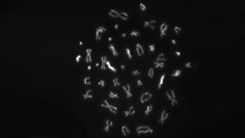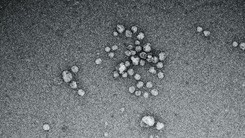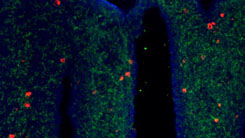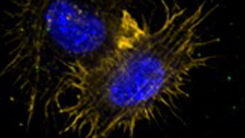HOW CAN WE HELP YOU? Call 1-800-TRY-CHOP
Kurre Laboratory
The Kurre Laboratory has a longstanding interest in Fanconi anemia (FA), a rare inherited genetic condition with prominent hematologic complications. The research aims of the lab, which has extensive experience in transplantation and hematopoietic stem cell biology, centers on improving the understanding of the progressive hematopoietic failure that occurs in patients with FA.
In addition to preclinical vector development for stem cell gene therapy, the lab’s more recent studies aim to reveal the origins of bone marrow failure in FA before birth. Studies in murine models of FA indicate that a significant portion of hematopoietic stem cells are lost prenatally and during infancy.
To that end, the Kurre Lab is developing strategies that will ameliorate those losses, with the long-term goal of reversing the successive erosion of the stem cell pool in children. Additional projects in the lab are focused on stem cell regulation by trafficking of extracellular vesicles in the bone marrow microenvironment.
Meet the Kurre Lab team in their Lab Life video. With longstanding expertise in hematopoietic stem cell biology, the Kurre Lab aims to make fundamental discoveries that improve our understanding of how bone marrow stem cells are regulated.

Peter Kurre, MD
Director, Comprehensive Bone Marrow Failure Center
Dr. Kurre's laboratory has longstanding expertise in Fanconi Anemia (FA), a genetic condition with prominent hematologic complications. With training in transplantation and hematopoietic stem cell biology, he hopes to improve the understanding of the progressive hematopoietic failure in patients with bone marrow failure and FA, broaden diagnostic approaches, and develop next generation therapies.

